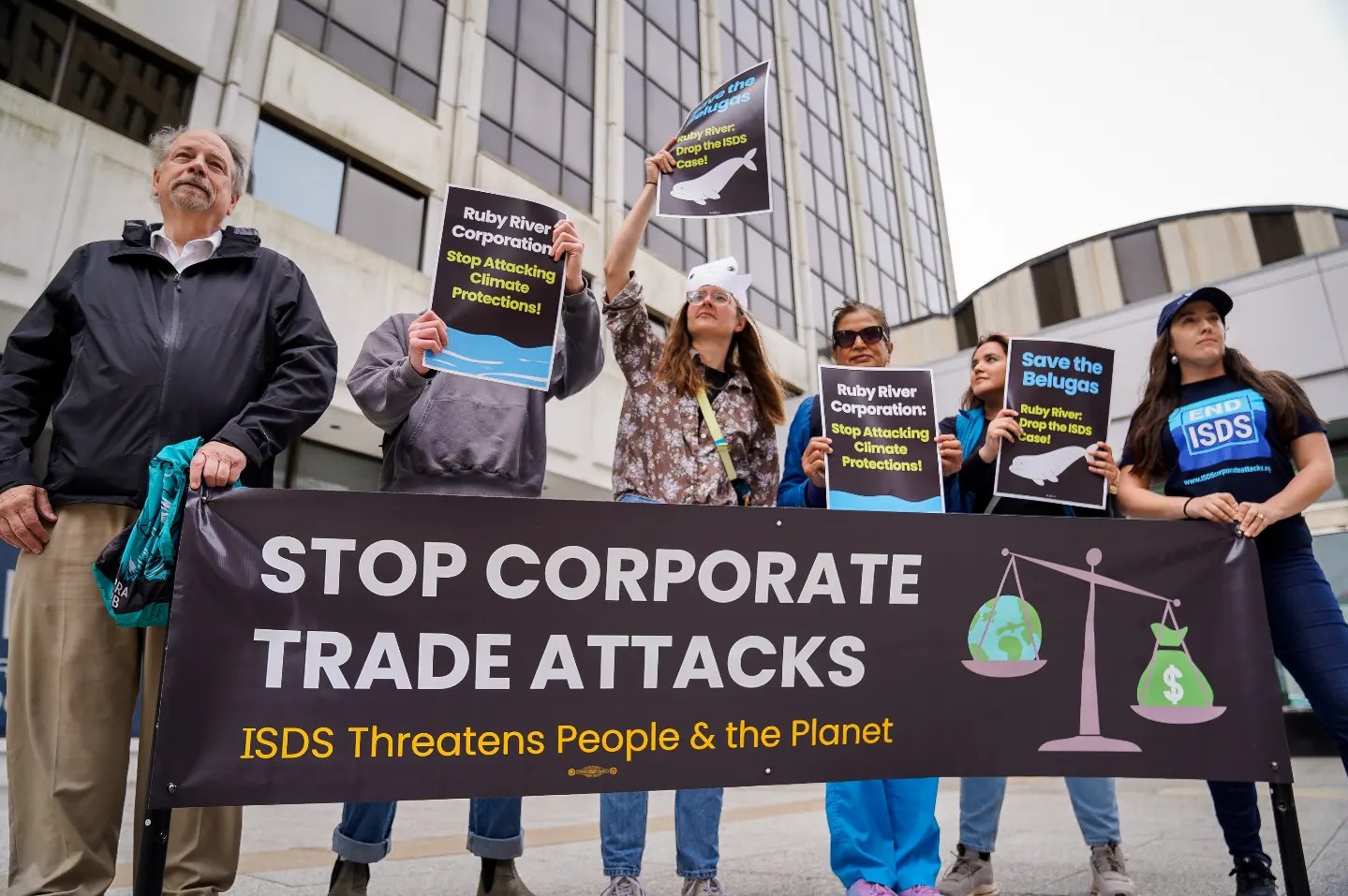Victories in the global movement against corporate globalization
Public Citizen | 24 April 2024
Victories in the global movement against corporate globalization
By Melanie Foley
A major pillar of corporate globalization is crumbling before our eyes.
For half a century, the Investor-State Dispute Settlement (ISDS) system has allowed multinational corporations to run off with billions of taxpayers dollars while allowing them to undermine environmental standards, public health protections, financial regulations, and other sound policies throughout the world.
But that system is now on the ropes thanks to a series of recent victories of our global movement.
TL;DR? Ryan Grim sums it up here:
1. Honduras
Last month, the small, developing nation of Honduras delivered the first of several recent gut punches to the global ISDS regime. The country, still recovering from the harmful policies of its previous coup government, is currently facing several ISDS cases, the largest of which is an appalling $11 billion lawsuit filed by U.S. cryptocurrency investors who are currently operating a for-profit private city and government within Honduran borders.
In response, the Honduran government has denounced the arm of the World Bank that hosts and enforces most ISDS cases. While this does not end the ongoing cases, it is an important step to ending the country’s exposure to future ISDS attacks.
2. United States
Last Wednesday, during a U.S. Senate Finance Committee hearing, Senator Sheldon Whitehouse (D-RI) described ISDS as “loathsome” and “evil,” highlighting the particularly shameful example in which tobacco companies attacked Togo for regulating the content of cigarette packages in an effort to promote public health.
For more on that case, see this classic segment on John Oliver’s Last Week Tonight.
In response to Sen. Whitehouse’s question, U.S. Trade Representative Katherine Tai confirmed that the U.S. is actively reviewing options to remove ISDS from its existing trade deals.
This is significant. It means we’re winning, something even corporate insiders have confirmed. One arbitrator recently lamented that defenders of ISDS, “have lost the battle of public opinion,” and, “to a large extent, the battle of legitimacy.”
Over the last decade, unions, environmentalists, and hundreds of civil society organizations have raised awareness so that ISDS is a contentious topic whenever a trade agreement is being negotiated, and the public faces a possible expansion of these special corporate rights. This is why the U.S. government is no longer seeking to include ISDS in any future trade agreements.
Organizing to stop a bad thing from happening is difficult enough, but forcing governments to take action to fix an entrenched existing problem is another matter altogether.
But a popular transnational movement is growing among civil society and elected officials to get this system out of existing trade deals, which could signal the end of this undemocratic system once and for all.
The USTR’s recent comments — and developments from around the world — indicate that the tides are turning.
3. Ecuador
Then on Sunday, Ecuadorian voters overwhelmingly rejected ISDS in a referendum initiated by the country’s right-wing government.
Back in 2017, Ecuador withdrew from sixteen trade deals and changed its Constitution to prohibit ISDS, after several egregious lawsuits from U.S. oil and gas companies challenged policies designed to uplift Indigenous and peasant communities.
At the time, a commission assembled by Ecuador’s government noted that these treaties “diverted millions of dollars of government money to fighting costly lawsuits” rather than aiding the policy goal of economic development.
When the referendum was announced just weeks ago, Ecuadorian civil society sprang into action. They fought an uphill battle to educate voters about this misleadingly written question on an obscure topic embedded within about a dozen other questions.
Voters in Ecuador resoundingly reaffirmed their opposition to ISDS, defeating the referendum with 65% voting NO and demonstrating that public opinion still overwhelmingly opposes undemocratic, corporatized trade deals.
4. European Union
And on Wednesday, the European Parliament approved a proposal to exit the Energy Charter Treaty, an antiquated pact granting ISDS rights to fossil fuel companies. This was the final straw after several years of campaigning had already led several individual EU countries to exit the treaty.
Efforts to abolish ISDS are the result of tireless transnational organizing and solidarity.
We are ever closer to proving that another world is possible — one that places communities at the center of trade and development.






